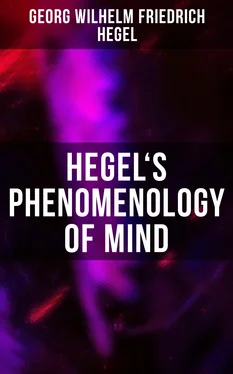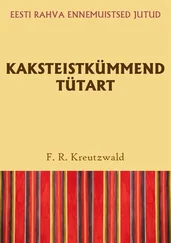It is this process by which science in general comes about, this gradual development of knowing, that is set forth here in the Phenomenology of Mind . Knowing, as it is found at the start, mind in its immediate and primitive stage, is without the essential nature of mind, is sense-consciousness. To reach the stage of genuine knowledge, or produce the element where science is found-the pure conception of science itself-a long and laborious journey must be undertaken. This process towards science, as regards the content it will bring to light and the forms it will assume in the course of its progress, will not be what is primarily imagined by leading the unscientific consciousness up to the level of science: it will be something different, too, from establishing and laying the foundations of science; and anyway something else than the sort of ecstatic enthusiasm which starts straight off with absolute knowledge, as if shot out of a pistol, and makes short work of other points of view simply by explaining that it is to take no notice of them.
The task of conducting the individual mind from its unscientific standpoint to that of science had to be taken in its general sense; we had to contemplate the formative development ( Bildung ) of the universal [or general] individual, of self-conscious spirit. As to the relation between these two [the particular and general individual], every moment, as it gains concrete form and its own proper shape and appearance, finds a place in the life of the universal individual. The particular individual is incomplete mind, a concrete shape in whose existence, taken as a whole, one determinate characteristic predominates, while the others are found only in blurred outline. In that mind which stands higher than another the lower concrete form of existence has sunk into an obscure moment; what was formerly an objective fact ( die Sache selbst ) is now only a single trace: its definite shape has been veiled, and become simply a piece of shading. The individual, whose substance is mind at the higher level, passes through these past forms, much in the way that one who takes up a higher science goes through those preparatory forms of knowledge, which he has long made his own, in order to call up their content before him; he brings back the recollection of them without stopping to fix his interest upon them. The particular individual, so far as content is concerned, has also to go through the stages through which the general mind has passed, but as shapes once assumed by mind and now laid aside, as stages of a road which has been worked over and levelled out. Hence it is that, in the case of various kinds of knowledge, we find that what in former days occupied the energies of men of mature mental ability sinks to the level of information, exercises, and even pastimes, for children; and in this educational progress we can see the history of the world’s culture delineated in faint outline. This bygone mode of existence has already become an acquired possession of the general mind, which constitutes the substance of the individual, and, by thus appearing externally to him, furnishes his inorganic nature. In this respect culture or development of mind ( Bildung ), regarded from the side of the individual, consists in his acquiring what lies at his hand ready for him, in making its inorganic nature organic to himself, and taking possession of it for himself. Looked at, however, from the side of universal mind qua general spiritual substance, culture means nothing else than that this substance gives itself its own self-consciousness, brings about its own inherent process and its own reflection into self.
Science lays before us the morphogenetic process of this cultural development in all its detailed fullness and necessity, and at the same time shows it to be something that has already sunk into the mind as a moment of its being and become a possession of mind. The goal to be reached is the mind’s insight into what knowing is. Impatience asks for the impossible, wants to reach the goal without the means of getting there. The length of the journey has to be borne with, for every moment is necessary; and again we must halt at every stage, for each is itself a complete individual form, and is fully and finally considered only so far as its determinate character is taken and dealt with as a rounded and concrete whole, or only so far as the whole is looked at in the light of the special and peculiar character which this determination gives it. Because the substance of individual mind, nay, more, because the universal mind at work in the world ( Weltgeist ),has had the patience to go through these forms in the long stretch of time’s extent, and to take upon itself the prodigious labour of the world’s history, where it bodied forth in each form the entire content of itself, as each is capable of presenting it; and because by nothing less could that all-pervading mind ever manage to become conscious of what itself is-for that reason, the individual mind, in the nature of the case, cannot expect by less toil to grasp what its own substance contains. All the same, its task has meanwhile been made much lighter, because this has historically been implicitly ( an sich ) accomplished, the content is one where reality is already cancelled for spiritual possibilities, where immediacy has been overcome and brought under the control of reflection, the various forms and shapes have been already reduced to their intellectual abbreviations, to determinations of thought ( Gedankenbestimmung ) pure and simple. Being now a thought, the content is the property of the substance of mind; existence has no more to be changed into the form of what is inherent and implicit ( Ansichseins ), but only the implicit-no longer merely something primitive, nor lying hidden within existence, but already present as a recollection-into the form of what is explicit, of what is objective to self ( Fürsichseins ).
We have to state more exactly the way this is done. At the point at which we here take up this movement, we are spared, in connexion with the whole, the process of cancelling and transcending the stage of mere existence. This process has already taken place. What is still to be done and needs a higher kind of transformation, is to transcend the forms as ideally presented and made familiar to our minds. By that previous negative process, existence, having been withdrawn into the mind’s substance, is, in the first instance, transferred to the life of self only in an immediate way. The property the self has thereby acquired, has still the same character of uncomprehended immediacy, of passive indifference, which existence itself had; existence has in this way merely passed into the form of an ideal presentation. At the same time, by so doing, it is something familiar to us, something “well-known”, something which the existent mind has finished and done with, and hence takes no more to do with and no further interest in. While the activity that is done with the existent is itself merely the process of the particular mind, of mind which is not comprehending itself, on the other hand, knowledge is directed against this ideal presentation which has hereby arisen, against this “being-familiar” and “well-known”; it is an action of universal mind, the concern of thought.
What is “familiarly known” is not properly known, just for the reason that it is “familiar”. When engaged in the process of knowing, it is the commonest form of self-deception, and a deception of other people as well, to assume something to be familiar, and give assent to it on that very account. Knowledge of that sort, with all its talk, never gets from the spot, but has no idea that this is the case. Subject and object, and so on, God, nature, understanding, sensibility, etc., are uncritically presupposed as familiar and something valid, and become fixed points from which to start and to which to return. The process of knowing flits between these secure points, and in consequence goes on merely along the surface. Apprehending and proving consist similarly in seeing whether every one finds what is said corresponding to his idea too, whether it is familiar and seems to him so and so or not.
Читать дальше












